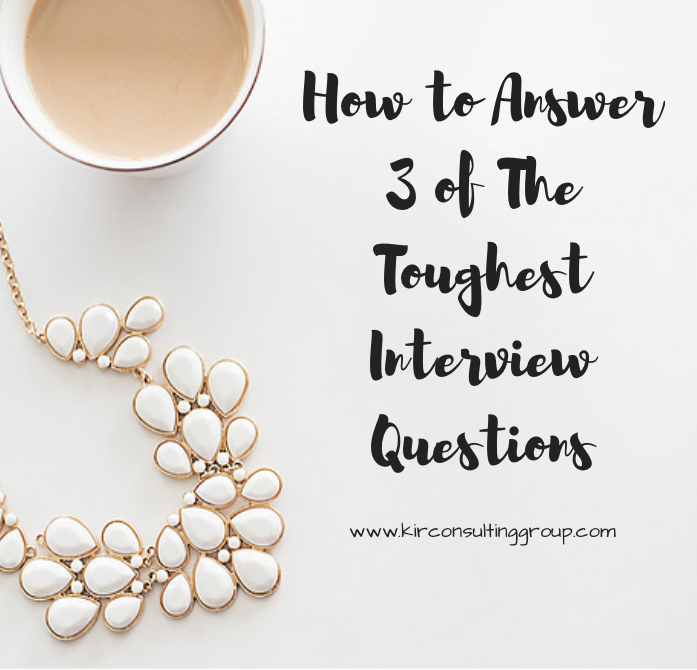I can't wait for the day when hiring managers and recruiters realize that the format of today's job interview just isn't the best way to assess whether or not a person will be a good fit for a particular job. Instead of asking tough interview questions to trip people up, managers should be focusing on carefully assessing the skills and value the candidate can (or cannot) bring to the table. After all, anyone can learn how to answer tough interview questions, but few people can fake being able to actually perform a required job function. Until that day comes, however, we are forced to work with the tools we have at our disposal, which include the standard 30-60 minute Q&A session with questions aimed at predicting future behavior based on past situations - otherwise known as - the job interview.
You know how the process goes - first, it's the introductory small talk portion, when you and the interviewer talk about the weather and any other topics you share common ground on, then the interviewer transitions to the main event where she proceeds to throw dozens of questions at you that you've already carefully researched, memorized and practiced, and last but not least, you're given the opportunity to show your stuff, and you recite your well thought out and prepared questions that make you sound so smart and intelligent.
Then it's all over.
In that short period of time, your interviewer has made a series of assumptions and judgments about you based on how you've answered the questions she's thrown your way, your body language, tone of voice, fashion sense and everything in between.
Sounds accurate, right?
While there's no way to ever 100% fully prepare to answer every single question you could possibly be asked during an interview - I was once asked what is my super power - a good strategy that I coach my clients on is to prepare to answer the tough questions that typically get asked so you won't get blind sided during the actual interview.

Here are 3 questions that are commonly asked in an interview that tend to stump candidates if they aren't prepared, and how to answer them the right way so that you can be well on your way to leaving your bad job for a great new one.
So, can you tell me about yourself? This question is probably asked in 99.9% of all job interviews. And if it isn't asked directly, it's asked in some variation such as, what brings you here today or why are you interested in this role?
Believe me when I tell you that the person asking this question really doesn't care about hearing your entire life story, like where you grew up or what you did for fun back in College. The key to answering this question is to realize that they want to know - why are you here in this seat, in this office, in this building, at this company applying for this specific role? Your response should focus on how your professional (and personal, if applicable) life has motivated you to apply for this particular role and how you plan to add value.
Tell me about a time when....? This question annoys me for some reason. I have no logical reason as to why - it just does. Tell me about a time when you've had to deal with a difficult person or lead a project or had a professional failure? Although most people tend to freak out about this type of question the most, it's actually one of the most simple ones to answer because you can break it down into a repeatable formula each and every time, no matter what they are asking.
You need to breakdown the answer to this question into 3 parts - W.H.O. WHAT the problem was, HOW you went about resolving it and what the OUTCOME was. If you stick to this format every time, you will always answer in a way that is cohesive and clear to the interviewer.
Why are you looking to leave your current job? As a HR manager, I've interviewed my fair share of people and sometimes I am so shocked and amazed at the responses I receive from people with this one. Under no circumstances should you take this opportunity to bash your current employer. The first thing the hiring manager will think is that if you can talk this negatively about your current boss and/or company, what will you say about him if you start working there?
Instead, when answering this question you should focus on the development opportunities you are looking for in your career and how the role you're interviewing for will help you achieve that career growth.
The interview process is a necessary evil in the process of finding a new job and the better prepared you are before you sit down for it, the better your chances will be to find success in the process. You should never walk into an interview ready to just 'wing it'. Always take the time to thoroughly prepare and plan your strategy.
Click here to get my free Interview Success Blueprint that provides proven strategies to help you turn your next interview into an actual job offer!
-Dorianne










